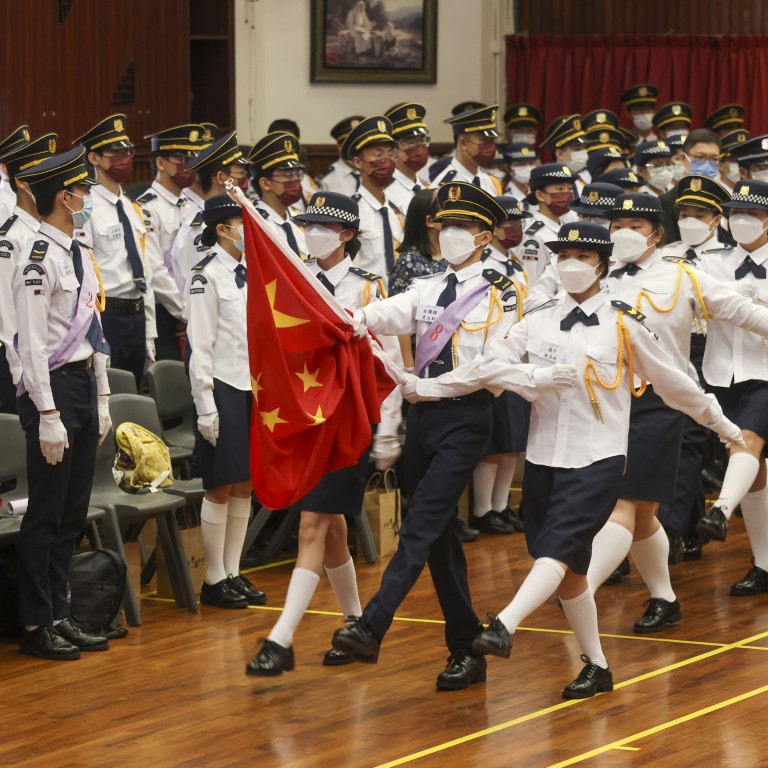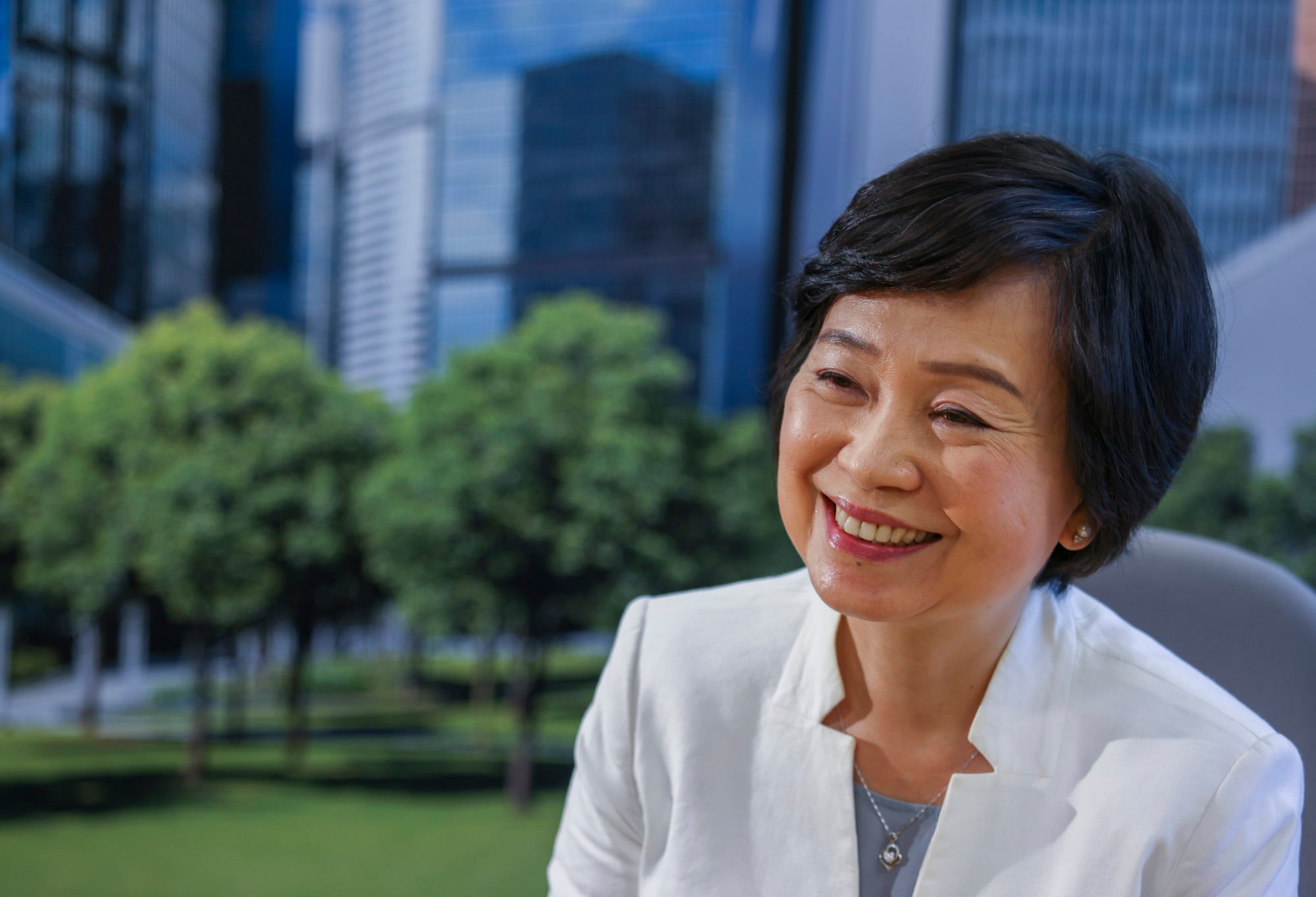
Hong Kong will not use performance goals to measure patriotic education or punish schools, teachers for poor delivery, minister says
- Education chief Christine Choi says no need to establish key performance indicators to measure success of patriotic education
- Teachers or schools considered to be delivering patriotic education poorly will not face punishment, she affirms
Hong Kong will not adopt performance goals for teachers to determine the success of patriotic education or punish schools and educators for delivering it poorly, a minister has said.
Secretary for Education Christine Choi Yuk-lin on Sunday said authorities would allow schools to evaluate performance in patriotic education.
“We will not use exams to assess how teachers conduct their classrooms,” Choi said on a television show, noting that at present there was no need to establish key performance indicators or implement additional assessments to ensure the quality of teaching.
Hong Kong to replace general studies in primary schools with humanities subject
“We also don’t see the necessary relation between teaching quality and whether an oath [to pledge allegiance] is taken,” she said, adding schools should bear the responsibility of conducting their own review of how well patriotic education was delivered.
Choi said the Education Bureau would instead focus more on professional areas, such as collaborative lesson planning, research on teaching approaches and school-based support, to work “hand-in-hand” with teachers to boost patriotism.
A government source earlier told the Post the humanities curriculum would focus on the country’s geography, history, latest developments and culture to boost awareness of national identity among students. It will be introduced in the 2025-26 academic year.

Separately in another televised programme on the same day, Choi said no punitive measures would be used on schools or teachers not delivering patriotic education well.
In October, the nation’s top legislative body the National People’s Congress (NPC) Standing Committee passed the new national law on patriotic education, which laid down goals to boost patriotism across the country. The law will come into effect on January 1 next year and also cover people in Hong Kong, Macau and Taiwan, as well as Chinese nationals overseas.
Any person in a position of authority who does not perform the duty of patriotic education as defined by the legislation will face punishment. But the law does not specify what the consequences are.
“In Hong Kong, we have the Guidelines on Teachers’ Professional Conduct, as well as other laws and regulations, such as the national security law and the national anthem law, which have already covered relevant requirements,” Choi said.
“And I think schools and teachers in Hong Kong are very clear about the requirements.”
The education chief said the bureau would not rule out the possibility of inviting high-ranking government figures, such as Chief Executive Lee and Beijing officials to conduct national security classes in local schools.
Hong Kong to set up ‘high-level patriotic education unit’ as national law passed
Besides the curriculum change, the Hong Kong government also announced it would set up a new coordination unit to promote patriotic education.
Two senior educators in the city agreed with Choi over the decision to not set performance goals or lay down punishment for teachers providing lessons on patriotism, while expressing confidence the quality of instruction would not suffer without them.
“It is hard to find a yardstick to assess if one loves his country or not,” said Ho Hon-kuen, the chairman of Education Convergence, a teachers’ organisation. “Patriotism concerns value education, which should not act in haste.”
But he suggested the government come up with a mechanism for “continuous observation” of students’ patriotism and incentives to encourage schools to conduct education based on love for the country.
Chu Wai-lam, principal of Fung Kai No 1 Primary School, said punitive measures went against the heart of education, which centred on encouragement.
“It is more important to create an atmosphere to launch patriotic education, rather than laying down compulsive requirements, such as organising a certain number of activities,” Chu said.
The ideal way to evaluate patriotism was to survey students, he added.

